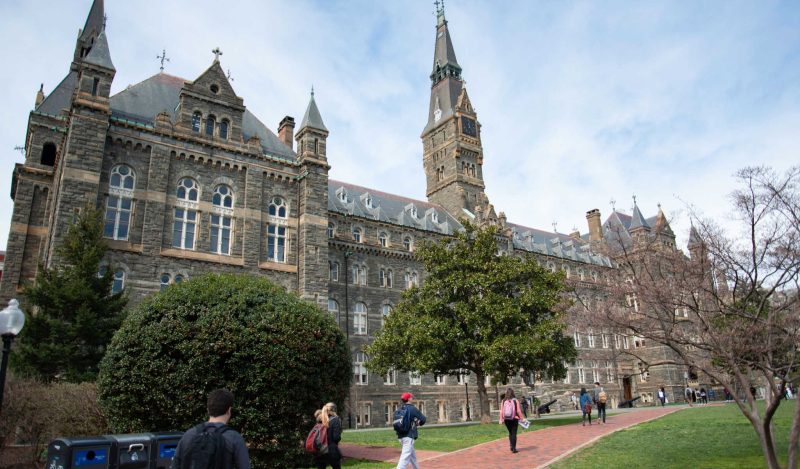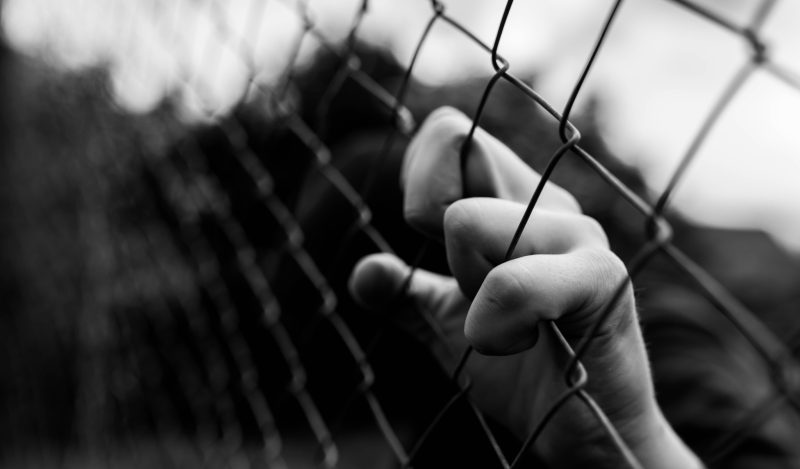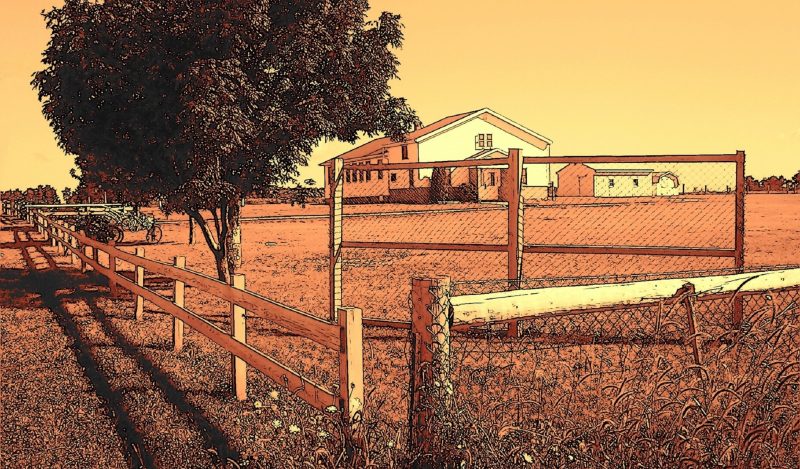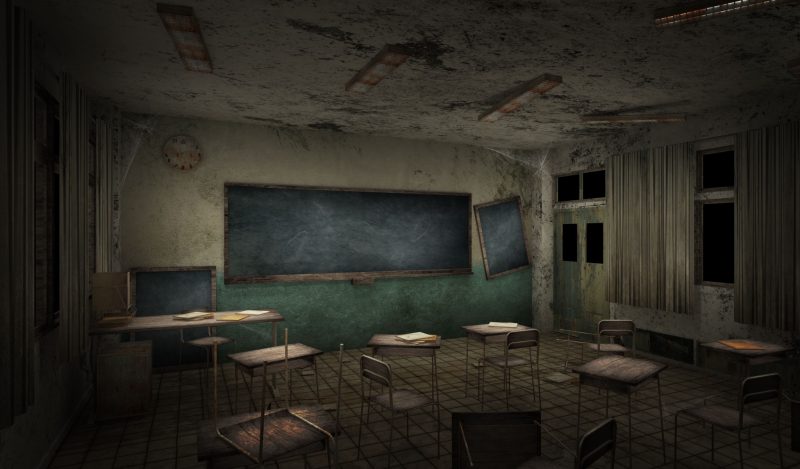Last month, I published my experience at Georgetown Law. For questioning Covid policies, administrators suspended me from campus, forced me to undergo a psychiatric evaluation, required me to waive my right to medical confidentiality, and threatened to report me to state bar associations.
I was hesitant to publicize my story for fear that it would appear self-centered. With time, however, I realized the story was not about me; it was about the corruption of an institution and two figures at the center of its rot: Dean of Students Mitch Bailin and Dean Bill Treanor.
My episode was a reflection on Georgetown’s power structure, not administrators’ attitude toward a respiratory virus. Repeatedly, Georgetown Law has been willing to tarnish individuals’ reputations to advance agendas that stand against traditions of free expression and inquiry.
Again and again, we see Trojan horses draped in innocuous and socially fashionable banners. They claim innate virtue under guises of public health, anti-racism, climate change, rainbow coalitions, and Ukrainian flags. At their core, however, they always benefit Leviathan, augmenting the power of corrupt institutions and stripping individuals of their freedoms.
Beyond the Covid hysteria, my three years at Georgetown (2019-2022) exemplified an institutional pattern of the politics of personal destruction, the eradication of free expression, and the mediocrity of Washington administrators.
Covid was a subset of a larger Washington narrative: the subjugation of individuals to the capricious whims of unimpressive bureaucrats. The following stories are meant to provide the context of the ruling class’s abandonment of formerly sacrosanct American principles in favor of an ideology based on power and image. This fosters a culture that rewards misrepresentations and disregards honesty.
My suspension from Georgetown Law was not an anomaly; it was the modus operandi of a university untethered from concerns for free expression, rationality, and veracity.
The stories of Sandra Sellers, Ilya Shapiro, and Susan Deller Ross demonstrate that the culture I discovered was a larger issue than a Covid response.
Sandra Sellers: Spring 2021
“Anything you say can be distorted, remixed and used against you.”
In my previous article, I noted Washington’s role as “Hollywood for ugly people.” The scriptwriters’ plotlines are free from concerns of truth or logic. They alter dialogue and context to add tension to the plot, building conflict before the antagonist is vanquished. This was the outline for the tragedy of Sandra Sellers, Georgetown’s 2021 spring production.
It begins with a flashback to 1991. Thirty years before Sandra Sellers’ downfall, a Georgetown Law student named Timothy Maguire held a campus job in the admissions department. He looked through the files, noticed a pattern, and published his findings in The Georgetown Law Weekly.
Maguire revealed that the average white student accepted to the law school had an LSAT score of 43 out of 50 while the average score for accepted black students was 36. There was a discrepancy in GPA as well – a 3.7 average for accepted white applicants and a 3.2 average for accepted black applicants.
The administration responded by launching a formal investigation into Maguire’s actions. They issued him a reprimand and later reported his actions to state bar associations. They did not claim his comments were false, and they did not address the central points of his arguments. Instead, they tarnished his reputation and threatened his future profession as an attorney.
The institution’s response was remarkably similar to the threats that I received for noticing the absurdity of university Covid policies.
“It’s painful not being politically correct,” Maguire told The Washington Post. He wore a button on his lapel that read: “Anything you say can be distorted, remixed and used against you.”
The Georgetown Black Student Association demanded the expulsion of Maguire. The school did not cave to the expulsion but continued its vilification campaign. Dean Judith Areen – Bill Treanor’s predecessor – attacked Maguire’s motives and avoided the facts in the article. She accused him of manipulating the data and tagged him with an implicit label of racism. The New York Times reported that the administration considered filing a lawsuit against Maguire.
“The attack on me, combined with the refusal to respond to my article’s allegations, did more to discredit the school and divide the student body than anything,” Maguire later reflected in a piece for Commentary.
In The Washington Post, columnist William Raspberry defended Maguire. Raspberry, an ardent supporter of affirmative action, wrote, “he does believe, as I do, that fairness is the ultimate test and that it is time to put the issue squarely on the table.”
Georgetown and its administrators chose to attack the reputation of the individual and threaten his future livelihood rather than counter his arguments.
Thirty years later, the plot resurfaced with an unlikely character. Sandra Sellers, a polite and apologetic academic woman, was not fit for the role of the racist. Sellers was an adjunct professor at Georgetown and co-taught a course with another adjunct professor, David Batson.
In Spring 2021, Georgetown Law still had not returned to in-person learning. After class one day, Sellers discussed grading with Batson. Apparently unaware that the conversation was being recorded, Sellers remarked: “I hate to say this. I end up having this angst every semester that a lot of my lower [students] are Blacks … You get some really good ones. But there are also usually some that are just plain at the bottom. It drives me crazy.”
She was not gleeful or malicious. As John McWhorter noted in The New York Times, “She wasn’t deriding the students — she said that every semester it gave her ‘angst’— but was instead posing the issue as a problem for which she sought a solution.”
But this empathetic response would not suffice for the Georgetown audience – they attributed racist intent. A student named Hassan Ahmad selectively edited the video to remove the context of the conversation and posted it to Twitter with the caption: “Negotiations Professors Sandra Sellers and David Batson being openly racist on a recorded Zoom call. Beyond unacceptable.”
Bill Treanor responded with the familiar tactic of personal destruction while avoiding the underlying facts. He called the statements “abhorrent” and the observations racist before firing Sellers. Further, Treanor suspended her co-teacher indefinitely. Batson hadn’t said anything in the video, but he shared the screen with the villain. They had been co-stars, and image – not rationality – was the driving force in Washington decision-making. Batson later resigned amid the ongoing “investigation” into his “behavior” (silence on a Zoom call).
Many had basic questions. Why had Sellers been fired? Was her statement a lie designed to slander black students? Had she deliberately given black students lower grades? Or had she just stepped on a landmine – the type that an academic should know better than to discuss? Most simply, was Sandra Sellers telling the truth? Did black students underperform? If so, wouldn’t that be an indictment on Georgetown?
“What precisely, was inappropriate about Ms. Sellers’ remarks?” University of Pennsylvania professor Jonathan Zimmerman asked in The Baltimore Sun.
Some viewers objected to her jocular tone and to her use of the term ‘Blacks,’ as opposed to Black students. But her statement reflected an important social fact: On the average, Black Americans get lower grades in law school than other racial groups do.
Sellers was not a hateful racist. She noted that black students receive lower grades in her classes and disapproved of the disparity. The Georgetown community could have joined her in addressing the complex issue. “Yet it’s so much easier,” Zimmerman wrote. “And, let’s face it, a lot more fun, to blame a hapless adjunct faculty member who was captured on a 40-second video clip.”
The black faculty at Georgetown Law released a statement attacking Sellers. “The professor’s comments also brutally undermine our Black students’ freedom to focus on learning. We are deeply concerned that our Black students will (rationally) spend their time worried that their law professors may hold white supremacist viewpoints,” they wrote. “The legacy of white supremacy is insidious and can explicitly and implicitly impact and infect some of our most vulnerable spaces and venerable institutions.”
Again, this should have been a time for simple questions. Is Sandra Sellers a white supremacist? If not, why would these professionals attack their co-worker with such a contemptuous label? There was no consideration of disparate LSAT scores, preferential admissions policies, or financial resources. The sentiments were monologues, not to be challenged by inconvenient facts.
Without any evidence, the Black Law Students Association at Georgetown wrote that Sellers’ “racist statements” show “not only Sellers’ beliefs about Black students in her classes, but also how her racist thoughts have translated to racist actions.”
The group added: “Sellers’ bias impacted the grades of Black students in her classes.” This was a significant accusation – the student group asserted that she had deliberately lowered the grades of black students. There was no proof of this, but this was about image, not logic or facts.
Students lined up to testify in the show trial. “It’s already hard as it is being a law student in general,” one student groveled to the school newspaper. “But to have other pressure on you as a Black student, to feel that no matter how hard you’re working, some professors like professor Sellers can look down on you or give you a worse review just because of the color of your skin — it’s depressing is what it is.”
At this point, Sellers’ explicit racism was accepted as fact. Her opponents had manipulated her from a kind woman who specialized in negotiations to David Duke in front of a lectern. Over 800 students (a third of the school) signed a letter calling for her termination. Each signed onto the unproven assertion that Sellers deliberately lowered black students’ grades.
There were no mentions of repeated studies that verify the performance gap that Sellers observed. These have included government reports, law review articles, academic studies, and citations in Supreme Court decisions.
UCLA Law Professor Eugene Volokh noted the simple logic underpinning the uncomfortable truth, “The usual predictors (the LSAT score and the undergraduate GPA) do a pretty good job of predicting law school performance… Therefore, if you let in any group with considerably lower predictors, they’ll on average do worse than their peers.” Fellow UCLA Law Professor Rick Sander noted: “My work found that virtually all of the black-white grade gap disappeared when one controlled for LSAT scores and undergraduate grades.” Non-meritocratic considerations, not racial inferiority or interracial animus, caused the disparity.
Dean Treanor tarnished Sellers’ reputation to advance his own interests. Instead of using the controversy as an opportunity to build resources or reconsider admissions practices, Treanor lamented that he had not done enough to censor Sellers from observing the disparity.
After firing her, Treanor wrote, “This is by no means the end of our work to address the many structural issues of racism reflected in this painful incident, including explicit and implicit bias, bystander responsibility, and the need for more comprehensive anti-bias training.”
The administrators and the declining intellect of Georgetown had a more superficial interest than discussing admissions policies or rationality. Race was an easier wedge to drive. It created villains, and, conveniently, Bailin and Treanor got to step in as the heroes.
These jackals smeared Sandra Sellers’ reputation. Now, her name will forever be linked to headlines and labels of “racist” and “abhorrent” thanks to Dean Treanor’s responses.
But a fundamental question still remains: why was Sandra Sellers fired? There was no evidence that she was biased in her grading. She had a private conversation after class that noticed racial disparities. It was not a lecture to the students nor was there any evidence that she was unfit to teach.
“It is not the proper role of a University to insulate individuals from ideas and opinions they find unwelcome, disagreeable, or even deeply offensive,” Georgetown’s policy reads. The policy applies to “casual conversations,” like after class discussions with a co-teacher. Yet Dean Treanor and his power-hungry gang of administrators fired a woman for discussing an unwelcome subject, suspended a man for listening to it, and then offered students counseling sessions in case they found it offensive.
Sellers was fired because she was disposable. Like my suspension over Covid, it was a simple power struggle. Moral grandstanding and vindictive punishments constituted the central tenets of Bill Treanor’s regime. Invertebrate and devoid of substance, Treanor instinctively violated his school’s policies and avoided engaging with the facts of the matter.
While the absurdity of an institution in such obvious decline is amusing, there is a human cost. Sandra Sellers was collateral damage. She deserved far better, but the University had an agenda: distort, remix, and utilize.
Ilya Shapiro: January 2022
The pattern at Georgetown became familiar: controversy begins, accuse someone of racism, tarnish his reputation, avoid engaging in a meaningful debate, offer platitudes to the student body, repeat. President Biden’s announcement of prerequisites for his Supreme Court Justice nomination – (1) Black (2) Woman – teed up a new controversy for administrators.
As Max Eden noted in Newsweek: “Anyone who has taken the LSAT can apply analytical reasoning to this prompt. Unless it is known, a priori, that the human subgroup ‘black women’ necessarily contains the most competent liberal jurist, then Biden was logically prioritizing race and sex over competence and merit.”
In January 2022, my final semester at Georgetown, Ilya Shapiro was set to start as a senior lecturer and executive director of the Georgetown Center for the Constitution. One week before his Georgetown job began, Shapiro used Twitter to respond to President Biden’s “black woman” requirement for the Supreme Court.
“Because Biden said he’s only considering black women for SCOTUS, his nominee will always have an asterisk attached. Fitting that the Court takes up affirmative action next term… Objectively best pick for Biden is Sri Srinivasan, who is solid prog & v smart. Even has identity politics benefit of being first Asian (Indian) American. But alas doesn’t fit into the latest intersectionality hierarchy so we’ll get lesser black woman. Thank heaven for small favors?”
- Premise 1: Srinivisan is the best pick.
- Premise 2: Choice must be a black woman.
- Premise 3: Srinivisan is not a black woman.
- Conclusion: Choice will be a lesser candidate.
“Anything you say can be distorted, remixed and used against you.”
Like Sellers, Shapiro immediately found himself at the center of a controversy that falsely attributed racism and malicious intent to his statement.
The Georgetown Black Student Association circulated a petition demanding for Shapiro to be fired, and students organized “a sit-in calling for the immediate termination of Ilya Shapiro and for the administration to address BLSA demands.”
Georgetown Law hosted the sit-in the next day. The familiar characters reappeared for the controversy. Dean Treanor stood at the front with Mitch Bailin by his side. One student demanded that black students’ absence from class that week should be excused as part of a “reparations” package. She then demanded that the school provide free food and a place for students to cry.
Mitch Bailin assured them, “We will find you space.” Most of the meeting featured familiar race-based taglines: references to slavery, “listening and learning,” and Dean Treanor’s repeated assurance that he was “appalled” by the tweet.
Treanor suspended Shapiro, placing him on indefinite leave while the school conducted an “investigation” into his tweets. Treanor wrote to the school that the tweet “suggest[ed] that the best Supreme Court nominee could not be a Black woman.” But that was not what Shapiro tweeted. His point was that discriminating based on race and gender disqualified the most-qualified candidate (who happens to be Indian).
Shapiro’s point about Srinivasan was well established. In 2013, Jeffrey Toobin referred to Srinivasan as “The Supreme Court Nominee-in-Waiting.” A Mother Jones article offered similar praise.
Like the attacks on Sellers, the campaign against Shapiro did not care about context. The only thing that mattered was the deliberate misrepresentation of three words: “lesser black woman.” Dan McLaughlin summarized the attacks on Shapiro in National Review: “We should call all of this what it is: an immoral, dishonest, and scurrilous smear campaign.”
Paul Butler, a professor at Georgetown Law, joined the attacks on Shapiro in his Washington Post opinion piece, “Yes, Georgetown should fire an academic for a racist tweet.” Butler did not engage with the logical formulation that a third-grader could follow. He did not address how Shapiro was racist for advocating for an Indian as the most qualified nominee. Those require nuance; calling a tweet “racist” does not. Butler wrote: “Allowing Shapiro to teach would force Black women — and other Black students and other women — to make the kind of wretched choice no student should have to make: accept that one of their school’s courses is off limits to them because of credible evidence the instructor is prejudiced, or enroll and serve as test cases for whether Shapiro’s claims to the contrary are correct.”
Like Sellers, the questions were simple: “What is your evidence that Ilya Shapiro is prejudiced? How was his tweet racist?”
Paul Waldman, also of The Washington Post, described criticism of Jackson’s nomination as “more grist for the White grievance mill, and that machine never stops running.” He denounced the “racist” “premise that appointing a Black woman to the court necessarily means she will be elevated over someone more qualified, presumably a White man.”
“Presumably a white man.” Waldman failed to grasp that Sri Srinivasan is not white. He did not address how the policy prioritized immutable characteristics over merit; notably, none of Shapiro’s attackers refuted that Srinivasan was a better qualified candidate.
One law student penned an essay for the school newspaper and accused defenders of Shapiro of intending “to silence Black students and their allies into acceptance of racism, sexism, and bigotry.” Like most in his group, he deliberately misrepresented Shapiro’s tweets as a racist manifesto rather than a description of the logical results of racial discrimination.
It was an unholy trilogy that attacked Shapiro. There were the remarkably stupid who lacked the basic skills to understand his statement; there were grifters who saw an opportunity for self-advancement; and there were the invertebrates who saw appeasement as an easy alternative to integrity.
Waldman likely fell into the first category. Butler (an MSNBC commentator) enjoyed the opportunism of the second group, and Treanor and Bailin were very familiar with the third approach. Just like Covid policies, sociably fashionable talking points were far more important than logic or free expression. This was especially true when circumstances augmented their power.
Shapiro responded publicly. “My intent was to convey my opinion that excluding potential Supreme Court candidates . . . simply because of their race or gender, was wrong and harmful to the long-term reputation of the Court,” he wrote. “A person’s dignity and worth simply do not, and should not, depend on any immutable characteristic.”
But explanations meant nothing to the insatiable mob. As journalist Bari Weiss later reported, over 75 percent of Americans agreed with Shapiro’s central point that Biden should consider “all possible nominees.” Only 23 percent supported President Biden’s decision to “consider only nominees who are Black women, as he has pledged to do.” Weiss wrote: “it was obvious to anyone reading him in good faith that what he intended to say was that Biden should pick the most qualified person for the job.”
But this was not an honest conversation – it was a show trial for an act of academic heresy. Logic and truth were far less important than punishing Shapiro.
Commentators from across the political spectrum opposed Shapiro’s suspension. Progressive columnists like Jeet Heer (The Nation) and Nikole Hannah-Jones defended Shapiro’s comments as “within the parameters of academic free speech.” Judge James Ho (5th U.S. Circuit Court of Appeals) defended Shapiro on campus. UCLA Law professor and First Amendment scholar Eugene Volokh wrote an open letter to Dean Treanor criticizing his decision to suspend Shapiro, gaining over 200 signatures from professors.
But, like discussions surrounding Covid, free speech had to take a backseat. The people in charge were dedicated to the preservation of image and power. They valued self-worth and comfort over academic expression.
When students demanded free food and rooms for crying, Treanor and Bailin instinctively dithered. They chose dereliction of duty in order to preserve self-image against a group of malicious Jacobins.
Dean Treanor announced: “Ilya Shapiro’s tweets are antithetical to the work that we do here every day to build inclusion, belonging and respect for diversity.” At Georgetown, the façade is more important than the meaning. Academic rigor, logical formulation, and reading comprehension take a backseat to the demands of the season’s socially fashionable trends.
Shapiro’s job status lingered in an indefinite suspension for more than four months. In June (conveniently just after the school year had ended), Bill Treanor announced that Shapiro was not fired because of the technicality that he was not yet an employee when he posted his controversial tweet. The University’s Office of Institutional Diversity, Equity, and Affirmative Action (IDEAA) told Shapiro that similar statements in the future would lead to hostile environment claims levied at him.
In response, Shapiro resigned his position, writing that Georgetown “yielded to the progressive mob, abandoned free speech, and created a hostile environment.”
Like my case, Shapiro escaped Georgetown without sacrificing his dignity. But that does not mean the incident was innocuous. It perpetuated and publicized a warning to the DC community that deviation from orthodoxy is impermissible, and deviants should expect to have institutions work to tarnish their reputations.
Susan Deller Ross: May 2022
The ACLU Women’s Rights Project celebrates Susan Deller Ross on its website as “a teacher of law, a scholar, a litigator, and a leader in the field of women’s rights for several decades.” She worked at the US Equal Employment Opportunity Commission and later joined future Supreme Court Justice Ruth Bader Ginsburg at the ACLU Women’s Rights Project.
After nearly four decades at Georgetown, Ross serves as the director of the International Women’s Human Rights Clinic, which she founded in 1998. The group has defended women against sexual violence, female genital mutilation, and child marriages. For her work in Muslim-majority countries, Georgetown students attacked her reputation, sought to have her terminated, and called her racist.
In May 2022, Georgetown students made a series of demands: first, Ross should have to forfeit her right to grade her students; second, the law school should take steps to interfere with her curriculum; third, all faculty should undergo specific anti-Islamophobia training; fourth, a representative from the Muslim Law Students Association (MLSA) should sit on every committee that appoints GULC faculty; fifth, the school should create an anonymous reporting system to file complaints against faculty.
Over 300 students signed the letter, including the editor-in-chief of the Georgetown Law Journal and the president of the student bar association. Hamsa Fayed, a second-year student at the law school, demanded that the school revoke Ross’s right to administer grades in her courses. “What we are asking for is simple: removing Prof. Ross from any student evaluation position where her biases and prejudices would negatively affect POC and Muslim students,” Fayed wrote.
Their “proof” of Ross’s “biases and prejudices” were past exam questions and a quote from an interview. Ross has taught at Georgetown for nearly 20 years, and her past exams are available to students. The MLSA accused her of writing and administering “violently Islamophobic and racist exams.” In 1999, an essay question asked students to write articulate legal defenses of France’s hijab ban. The other example of “racism” was a 2020 exam question that asked students to defend the legal status of an extremist far-right Indian group.
Next, the MLSA argued that “Professor Ross uses Georgetown resources to contribute to public Islamophobic discourse through publications and interviews that characterize Islam as devoid of human rights and contributing to the oppression of Muslim women.”
The group’s evidence was a 2009 interview in which she stated that “Muslim women are given different and lesser rights than similarly situated Christian women, precisely because of their husband’s identity as Muslim.” The MLSA did not include her basis for the quote, which cited Muslim inheritance laws that dictate that women “should only receive half the share of inheritance that similarly situated men and boys would receive.”
Based on her interview, Fayed wrote that it was “quite clear” that “Ross is not able to objectively evaluate any questions relating to Muslims and their practice without injecting dangerously Islamo-phobic rhetoric into her teachings and examinations.” Fayed demanded that Ross “refrain from the use of those topics in her class lectures and examinations.”
Fayed did not address whether Ross’s statements were true. He did not counter her assertion or make defenses of women’s legal status in countries like Saudi Arabia, Indonesia, Pakistan, or Bangladesh. He did not respond to Ross’s arguments or challenge her premises. Instead, he attacked her personally, attributing malice where none existed.
Like the cases of Sellers and Shapiro, Dean Treanor had the opportunity to send a clear message to the student body. This was a tenured professor with a career of advocacy to her name. But Treanor could not deviate from his pre-ordained script. He did not stand up for Ross or faculty members’ rights to develop their own exams. Instead, he pandered.
“Georgetown Law is committed to ensuring an inclusive campus that welcomes students of all backgrounds,” Treanor offered insipidly. He stressed the prioritization of making classrooms “inclusive environments” in an email to the campus newspaper and issued no statement of support for Ross.
This was not a small request. The students claimed that they had the right to dictate what a tenured professor could teach. They slandered her as a racist and refused to address her arguments. Further, exam questions are not endorsements of behavior. Law students are supposed to learn to defend any side of an argument. A criminal law question about defending a murderer would not mean the teacher supported homicide.
These are simple ideas, yet Dean Treanor was unwilling to defend them. Going forward, the trend will likely continue, for the students will not expect any resistance. Then, the petulant leaders behind these censorious tantrums will leave campus and continue their campaigns of ideological tyranny in clerkships, government agencies, and HR departments.
Like each of these cases, there is a human cost. Susan Deller Ross deserves an institution that will defend her rights as a tenured professor. Students deserve a school capable of honest engagement with conflicting opinions. And the people who built Georgetown Law deserve a better legacy than the institution of Bailin and Treanor.
In Summary
Unfortunately, Georgetown’s failures do not drift into the Shady Acres of academia. Modern media turns these issues into permanent smear campaigns. With Google, the names never escape the malicious vilification campaigns. For more prominent targets, their Wikipedia pages adopt the slandering label of ‘racist.’ The less famous end up as roadkill; collateral damage of a rotten institution. The culture stifles free inquiry, amounting to prior restraint for those that don’t dare risk the social or professional costs of speaking out of line. It ruins lives, permanently maligns reputations, and destroys an institution that the administrators could never build themselves.
Most of all, this system benefits the people in charge, who maintain the status quo through the politics of personal destruction. The school serves as an incubator for the unimpressive rulers of tomorrow. Some classmates will go on to serve the party line in Congress, others as bureaucrats, and many more as faceless defenders of Wall Street. No matter where they land, they’ll internalize the dogma of Georgetown Law.
As evidenced by the recent scandal at Stanford Law, these issues are not unique to any campus. However; Georgetown’s regime is an apt microcosm for the ruling class that it serves. At the core of each controversy are struggles between individualism and institutional demands for submission, between free expression and censorship, and between rationality and power-based struggle sessions.
Published under a Creative Commons Attribution 4.0 International License
For reprints, please set the canonical link back to the original Brownstone Institute Article and Author.
